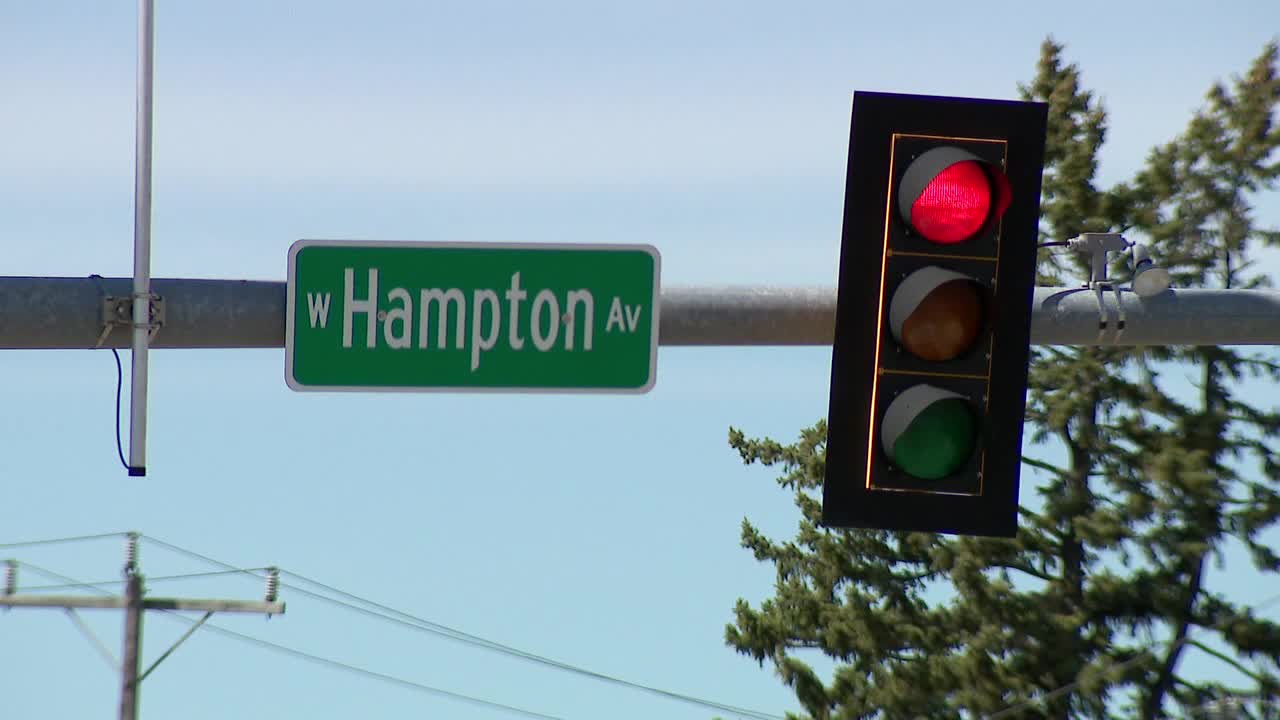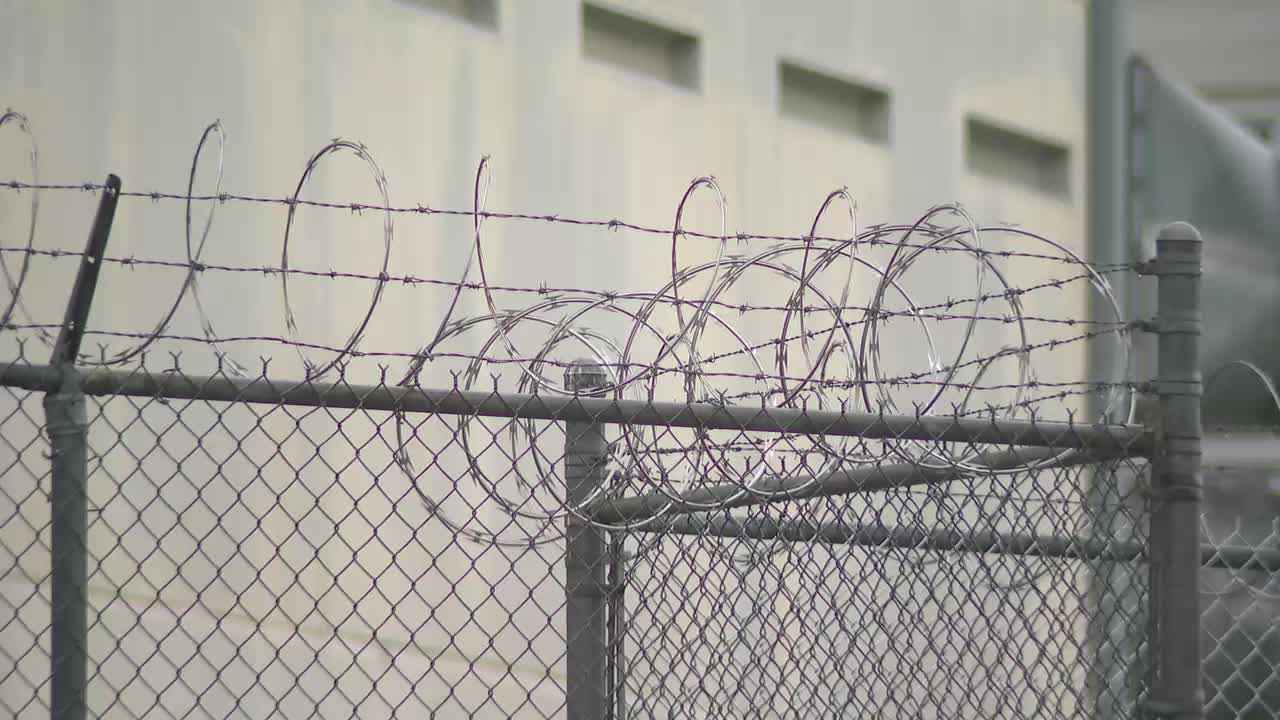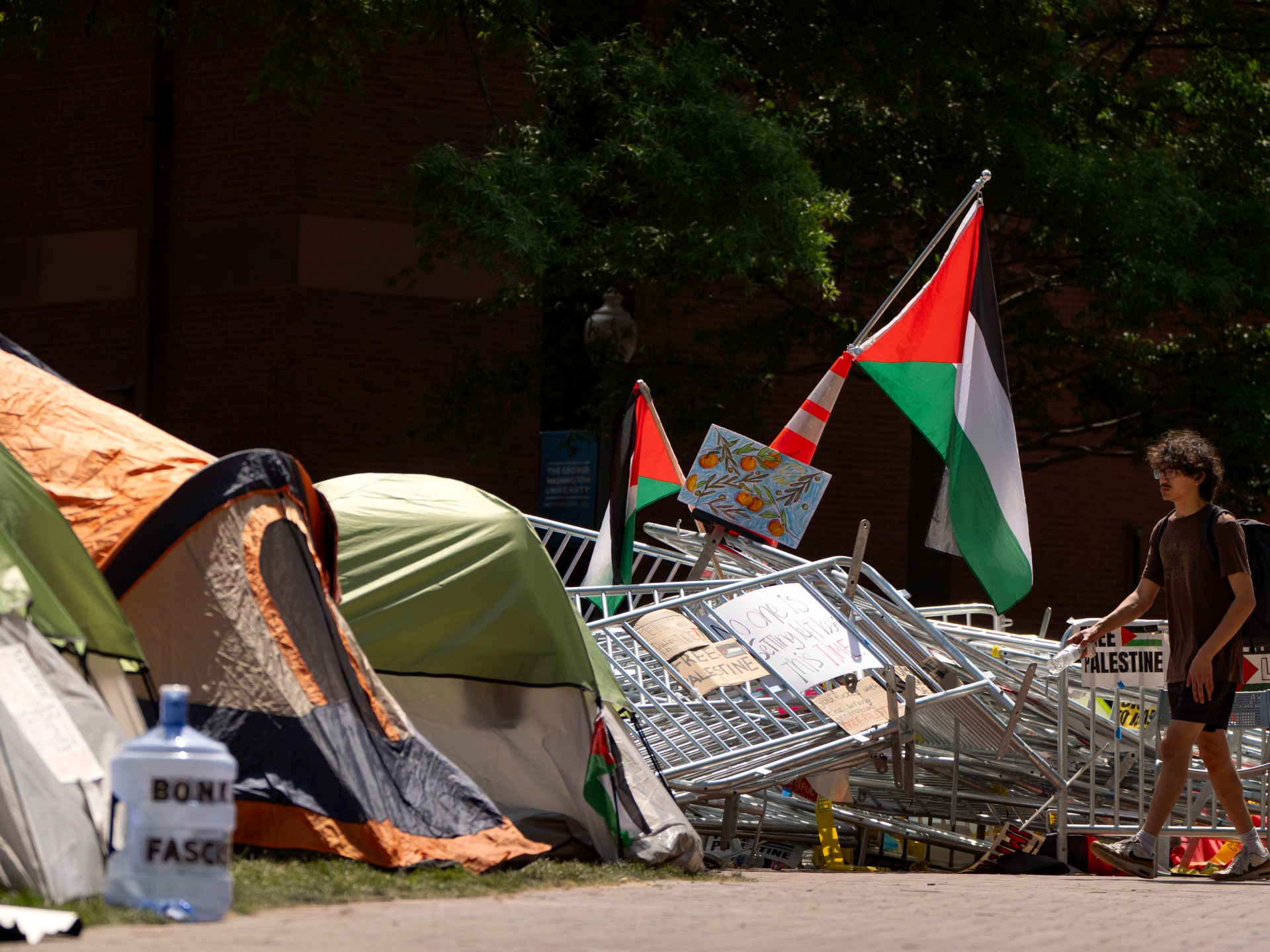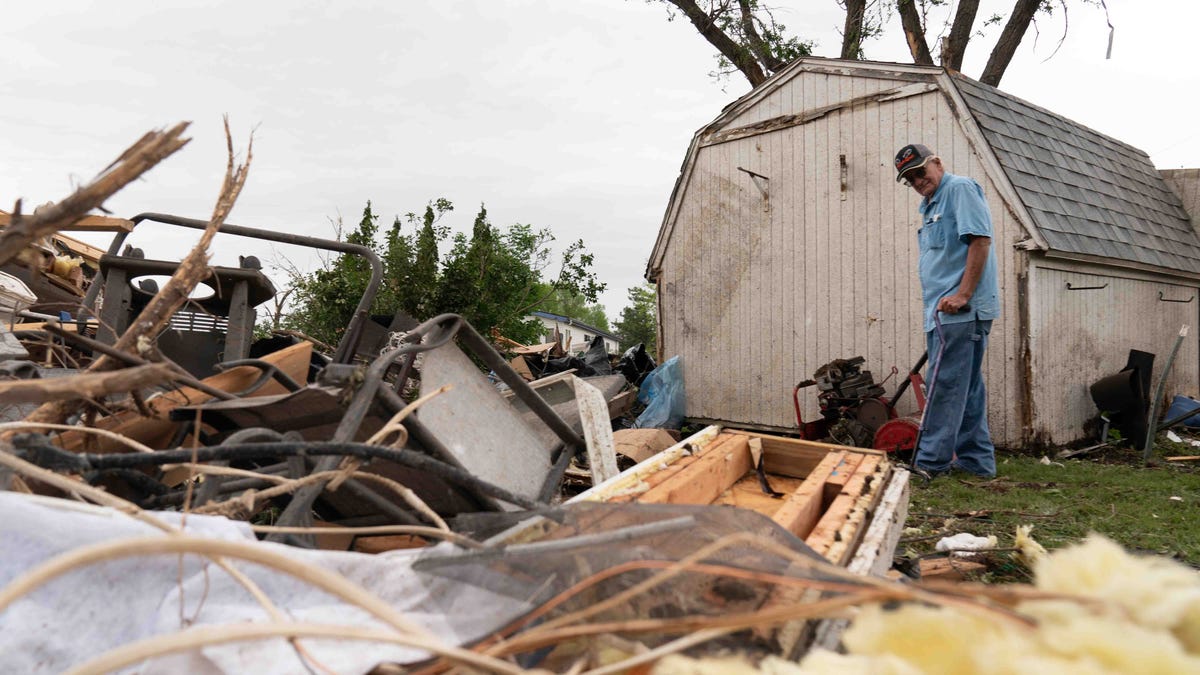World
Israeli attack on nuclear sites to prompt tit-for-tat, pursuing nukes: Iran
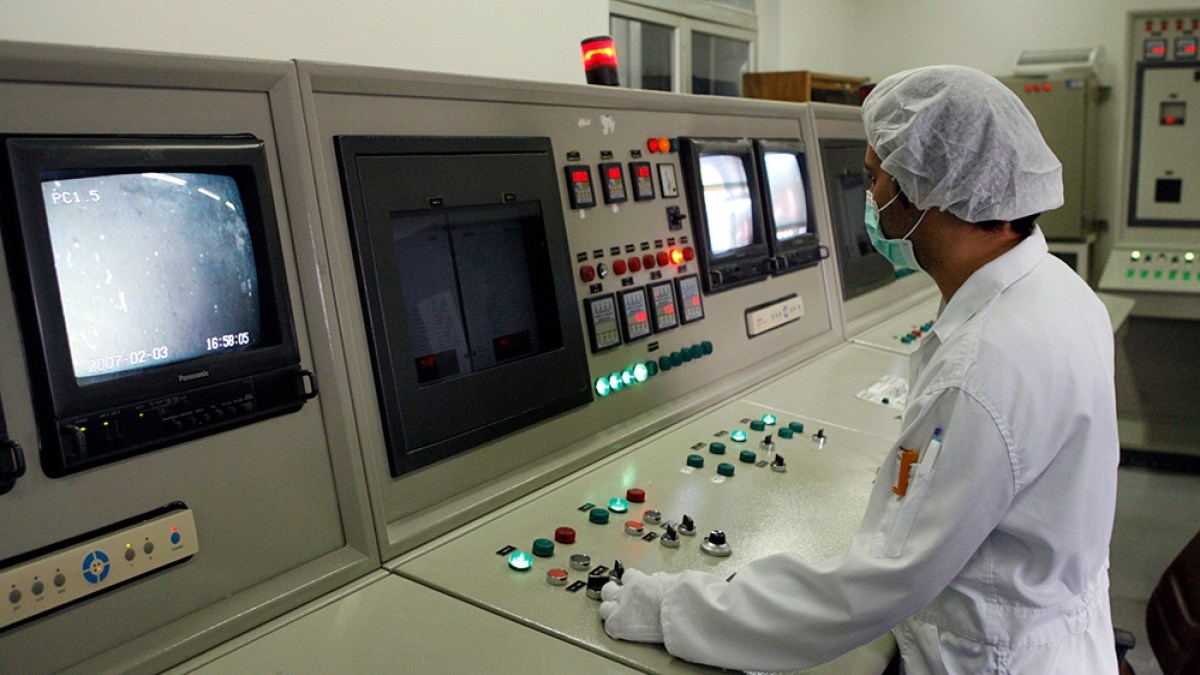
Iran warns Israel that if it goes ahead with a retaliation for last week’s attack, Tehran will respond in kind and also pursue a nuclear weapon.
Tehran, Iran – Iran’s Islamic Revolutionary Guard Corps (IRGC) has warned that it would attack Israel’s nuclear sites and may pursue a nuclear weapon if the country strikes at Iran’s nuclear facilities.
The development came on Thursday, after Israeli officials promised a response to Iran’s unprecedented attacks on Israel last week, which were a retaliation for the Israeli military’s suspected targeting of Tehran’s consulate in Syria.
“The nuclear facilities of the Zionist enemy have been identified and all the necessary information from all targets is at our disposal,” the IRGC’s Brigadier General Ahmad Haghtalab was quoted as saying by Iran’s semiofficial Tasnim news website.
“Our fingers are on the trigger of firing strong missiles to destroy the designated targets in response to a potential attack by them,” said the commander of the IRGC division that is tasked with protecting Iranian nuclear facilities.
Haghtalab also gave what is Iran’s highest-level and most direct warning yet that it may abandon its stated policy of refraining from building a nuclear bomb.
“If the fake Zionist regime wants to use the threat of attacking the nuclear centres of our country as a tool, reconsidering the doctrine and policies of the Islamic Republic of Iran, and deviating from previously stated considerations would be likely and imaginable,” he said.
Iran’s top nuclear facilities, especially the installations at Natanz in central Isfahan, have been subject to multiple significant sabotage attacks blamed on Israel amid a shadow war in more than a decade that also saw several Iranian nuclear scientists assassinated.
But Israel has never directly attacked Iranian soil, let alone its nuclear facilities.
In March 2022, after several high-profile sabotage attacks and as the IRGC said it foiled yet another attack, the new nuclear security command unit of the elite force was first publicly mentioned.
Iran is currently enriching uranium up to 60 percent, which is a short technical step from the more than 90 percent enrichment required for an atomic bomb.
The country also possesses enough fissile material for several bombs, making it a threshold nuclear state.
But it has yet to start on further steps required to actually build a bomb, according to the International Atomic Energy Agency (IAEA) and US intelligence assessments.
Even as Iran’s 2015 nuclear deal with world powers gradually faltered following the 2018 unilateral withdrawal by the United States, Tehran had so far said it had no plans to pursue a nuclear weapon.
The warning on Thursday comes as top Iranian political and military leaders have promised a quick and strong response if Israel decides to attack.
Hassan Abedini, an Iranian state media executive and adviser, on Thursday in a post on X published photos of meeting Amir Ali Hajizadeh, the aerospace chief of the IRGC.
According to him, Hajizadeh said the force refrained from using its main ballistic missiles during last week’s attack, including the Khorramshahr, Sajil, Haj Qassem, Kheibar Shekan-2, and the Fattah family of hypersonic missiles.
The IRGC used “minimum capability” and is ready for another significant attack, he was quoted as saying, likely in response to claims by US military officials that Iran depleted a considerable portion of its long-range ballistic missile arsenal.

World
New Russia sanctions target weapons development and countries assisting in sanctions evasion
WASHINGTON (AP) — The U.S. on Wednesday imposed new sanctions on hundreds of firms and people tied to Russia’s weapons development program, more than a dozen Chinese firms accused of helping Russia find workarounds to sanctions and individuals tied to the death of Russian dissident Alexey Navalny.
The sanctions imposed by the Treasury and State departments target Russia’s military-industrial base, chemical weapons programs and people and firms in third countries that help Russia acquire weapons components as its invasion of Ukraine has entered its third year.
Treasury Secretary Janet Yellen said the action “will further disrupt and degrade Russia’s war efforts by going after its military industrial base and the evasion networks that help supply it.”
The sanctions come as the Senate gave final approval to legislation barring imports of Russian uranium, boosting U.S. efforts to disrupt Russia’s war in Ukraine. President Joe Biden is expected to sign the bill into law.
About 12% of the uranium used to produce electricity at U.S. nuclear power plants is imported from Russia, according to the U.S. Energy Information Administration.
A spokesperson for the National Security Council said Wednesday that Biden, a Democrat, shares lawmakers’ concerns about U.S. reliance on Russia for low-enriched uranium to support its domestic nuclear fleet.
Included in Wednesday’s sanctions announcement are importers of cotton cellulose and nitrocellulose — used to produce gunpowder, rocket propellants and other explosives. Also included are Russian government entities and people tied to Russia’s chemical and biological weapons programs and firms related to Russia’s natural gas construction projects.
Russian President Vladimir Putin has repeatedly railed against several rounds of U.S. and Western sanctions, claiming last year that they are “illegitimate sanctions” on his country.
A group of 16 targets in China and Hong Kong, most of which are related to Russian procurement workarounds, are also included in the latest sanctions announcement.
Firms in countries including China, Azerbaijan, Belgium, Slovakia, Turkey and the United Arab Emirates are accused of helping Russia acquire technology and equipment from abroad. The penalties aim to block them from using the U.S. financial system and bar American citizens from dealing with them.
The sanctions come after Biden last week said he would immediately rush badly needed weaponry to Ukraine as he signed into law a $95 billion war aid measure that also included assistance for Israel, Taiwan and other global hot spots.
Yellen said with the sanctions and supplemental funding combined, “our support for Ukraine and our relentless targeting of Russia’s military capacity is giving Ukraine a critical leg-up on the battlefield.”
World
Indonesia’s Ruang volcano spits more hot ash after eruption forces schools and airports to close
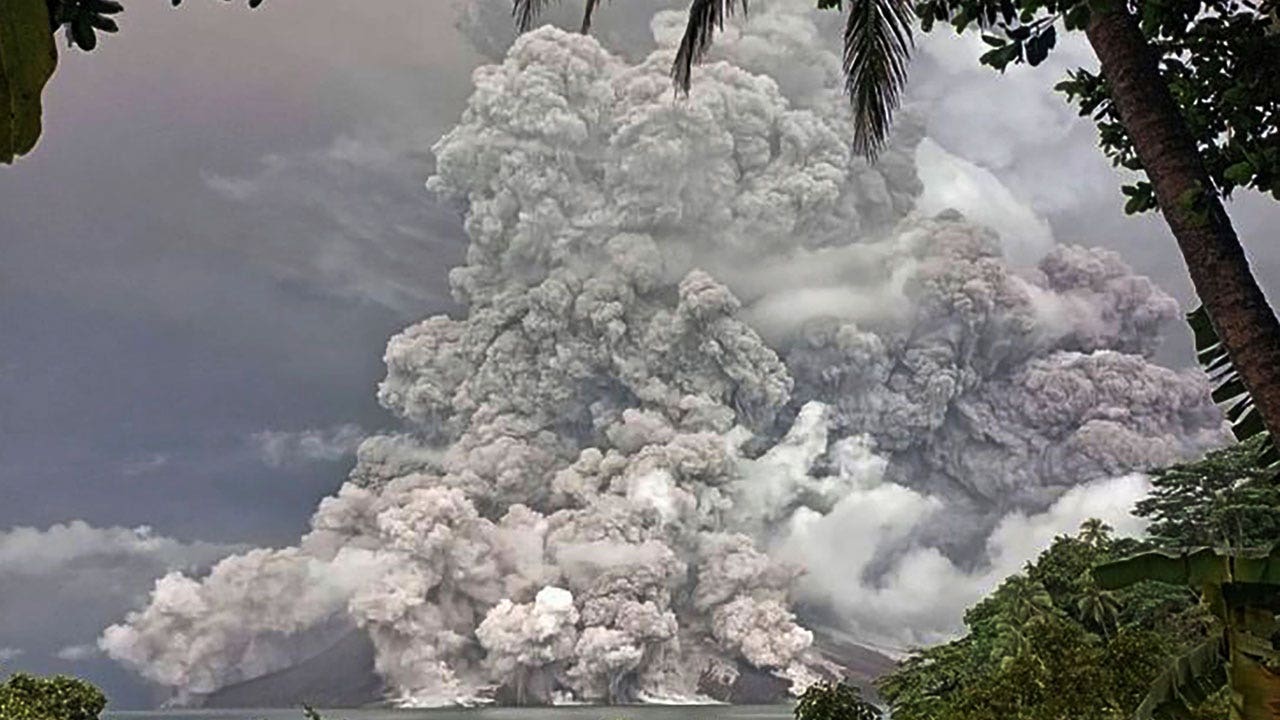
Indonesia’s Mount Ruang volcano spewed more hot clouds on Wednesday after an eruption the previous day forced the closure of schools and airports, pelted villages with volcanic debris and prompted hundreds of people to flee.
Seven airports, including Sam Ratulangi international airport in Manado, the capital of North Sulawesi province, remained closed after Tuesday’s eruption, the second in two weeks. Schools were shut to protect children from volcanic ash.
The volcano is on tiny Ruang Island, part of the Sitaro islands chain.
VIDEO SHOWS LIGHTNING SHOOTING FROM TOXIC ASH CLOUD DURING POWERFUL VOLCANIC ERUPTION IN INDONESIA
The Indonesian geological agency urged people to stay at least 4 miles from the volcano’s crater. It warned people on nearby Tagulandang Island, the closest to the volcano, of possible super-heated volcanic clouds from a further eruption and a tsunami if the mountain’s volcanic dome collapses into the sea.
Mount Ruang releases volcanic materials during its eruption on April 30, 2024, on Sulawesi Island, Indonesia. The volcano erupted on April 30 for a second time in two weeks, spewing ash more than a mile into the sky, forcing an airport to close and peppering nearby villages with debris. (Vulcanology and Geological Disaster Mitigation Center via AP Photo)
Video released by the National Search and Rescue Agency showed about a hundred villagers from Tagulandang Island being evacuated on a navy ship. Hundreds of others were waiting at a local port to be evacuated.
Agency spokesperson Abdul Muhari said 11,000 to 12,000 people living within a 4-mile danger zone would be taken to government shelters.
Tuesday’s eruption darkened the sky and peppered several villages with ash, grit and rocks. No casualties were reported.
After Mount Ruang’s April 17 eruption, authorities warned that a subsequent eruption might collapse part of the volcano into the sea.
Ruang is among about 130 active volcanoes in Indonesia. The archipelagic nation is prone to volcanic eruptions and earthquakes because of its location on the Pacific “Ring of Fire,” a series of fault lines stretching from the western coast of the Americas through Japan and Southeast Asia.
World
Turkish police arrest hundreds at Istanbul May Day protests

Authorities deployed more than 40,000 police officers across the city after banning protests in Taksim Square.
Police in Istanbul have used tear gas and rubber bullets to disperse protesters who tried to break through a barricade to reach the city’s Taksim Square in defiance of a ban on May Day rallies.
Turkish Interior Minister Ali Yerlikaya said 210 people were arrested on Wednesday.
More than 40,000 police were deployed across the city, blocking even small side streets with metal barriers after President Recep Tayyip Erdogan said on the eve of May Day that the annual protests would not be allowed to take place in the square.
Tall metal barriers were put up around the square – a traditional focal point of protests in Istanbul, where authorities have banned rallies since 2013, when it was the focus of demonstrations against Erdogan’s government.
On X, Yerlik said that “210 people were detained in Istanbul after failure to heed our warnings and attempting to walk to the Taksim Square and attack our police officers on May 1 Labour and Solidarity Day.”
Police clashed with demonstrators near city hall in the Sarachane district, firing tear gas and rubber bullets to stop protesters from breaching barricades, the AFP news agency reported.
“We have demonstrated our will to celebrate May Day at Taksim Square. We have legal grounds,” Arzu Cerkezoglu, secretary general of the Confederation of Revolutionary Trade Unions of Turkey (DISK), told AFP.
“Taksim is an important symbol for us. Taksim means May Day, Taksim means labour,” she said.
In 2023, Turkey’s top constitutional court ruled that the closure of Taksim Square for protests was a violation of citizens’ rights. The square was a rallying ground for May Day celebrations until 1977, when at least 34 people were killed during demonstrations. Authorities opened it up again in 2010, but it was shut again after the 2013 protests.
City locked down
Main roads across Istanbul were closed to traffic while public transport including ferries and subway trains was halted because of the security clampdown. Landmarks such as the Topkapi Palace were cordoned off.
On Monday, Yerlikaya said Taksim would be out of bounds for rallies to stop “terrorist organisations” from using it for “propaganda”.
Turkey’s main opposition Republican People’s Party (CHP) and unions had pressed the government to open the square for labour rallies, but Erdogan warned on Tuesday against any provocation.
CHP leader Ozgur Ozel, accompanied by Istanbul’s Mayor Ekrem Imamoglu and labour unions, gathered in the Sarachane neighbourhood.
“We will keep on fighting until Taksim is free,” Ozel said. “Taksim belongs to the workers.”
Addressing the police, Ozel declared: “These workers are not your enemies. Our only desire is for the day to be celebrated as a festival. We do not want conflict.”
-

 Education1 week ago
Education1 week agoVideo: Dozens of Yale Students Arrested as Campus Protests Spread
-

 Movie Reviews1 week ago
Movie Reviews1 week agoShort Film Review: Wooden Toilet (2023) by Zuni Rinpoche
-

 News7 days ago
News7 days agoLarry Webb’s deathbed confession solves 2000 cold case murder of Susan and Natasha Carter, 10, whose remains were found hours after he died
-

 World6 days ago
World6 days agoHaiti Prime Minister Ariel Henry resigns, transitional council takes power
-

 Politics1 week ago
Politics1 week agoFetterman hammers 'a–hole' anti-Israel protesters, slams own party for response to Iranian attack: 'Crazy'
-

 World1 week ago
World1 week agoPeriod poverty still a problem within the EU despite tax breaks
-

 World7 days ago
World7 days agoUS secretly sent long-range ATACMS weapons to Ukraine
-

 News6 days ago
News6 days agoFirst cargo ship passes through new channel since Baltimore bridge collapse
